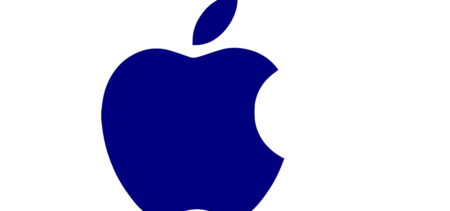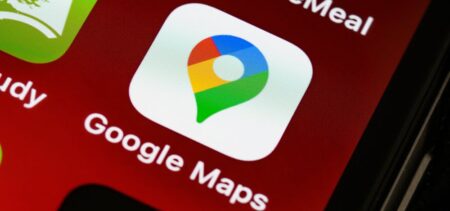Many of Facebook’s users are in groups that intermediate buying and selling. More precisely, over 450 million people visit such groups each month. They range “from families in a local neighborhood to collectors around the world”, according to Mary Ku, Facebook Marketplace Product Management Director.
It was Mary Ku who introduced the new Facebook product everyone seems to be talking about this last week – Facebook Marketplace. At the beginning of October 2016 she announced it via a Newsroom post. The statement described the functionality of this new feature, while making it clear that “Facebook does not facilitate the payment or delivery of items in Marketplace.”
This new social network feature is an attempt at making a unitary official virtual space for such commercial activities, with a spotlight on local transactions. It competes on a market specific to Craigslist and eBay or Gumtree. In fact, TechCrunch describes it as a “friendlier Craigslist”. It inherently integrates with Facebook Messenger and it comes with a items browsing system. This allows users to sort items by relevancy and to input their own offers in no time.
The same online publication interviewed Bower Pan, Facebook Product Manager. They found out that the initial goal of the network is to build a great experience for their customers. Only later on the company might potentially monetize the Marketplace surface.
Does Facebook Marketplace sound familiar?
If it does, you are right. Bloomberg reminds to their readers that Facebook started a similar (the similitude was even in the denomination) service in 2007. At that time the feature did not catch on. That Marketplace powered by Oodle (a third party) was soon lost in the Internet mists. It disappeared from Facebook’s suite in 2009. If interested in comparisons, you may check here how Oodle marketplace looks like and how it functions.
Social selling was no stranger to Facebook. It took many faces along time, such as the “For Sale” post option in groups or the pre-Marketplace “Local Market” feature tested in October 2015. As mentioned before, numerous more or less spontaneous buy-and-sell groups sprouted along time inside the social network. Those of us who visited such groups know that it is a matter of continuous, meticulous administrators to keep them from turning into useless spam-cluttered virtual spaces. Often the same account is behind more than one such groups. Its own agenda often comes through the organic user posts after a while. On the contrary, un-selected, mixed posts end up in contradicting the group’s purpose in the rest of the cases.
The local buy-and-sell concept
What Facebook Marketplace tries to do is to import the local buy-and-sell concept into the network. In the hope that somehow these disparate groups will merge into one flexible, better functioning feature, Facebook provides a place-holder. The desiderata is also attracting activities that now are exterior to Facebook. Going local is in line with Google’s moves from global to national. This merges with the perspective of local marketing and marketing-oriented user tracking.
Nevertheless, is that a whim or a serious advantage with users? Perhaps it’s a matter of taste. But is surely makes a lot of sense that one would look first in his/hers vicinity when buying or selling stuff. It is easier to solve such problems locally, to have faster delivery, to be able to actually go and try out the item in question, if possible.
Social selling in this form looks a lot like Facebook wants to materialize itself at the community level. Becoming a Facebook user meant bringing your real-life group into a virtual place. Now, with Facebook Marketplace there is a chance of bringing virtual commercial relationships into reality. Find a seller or a buyer, negotiate the price online, establish a meeting point, check the item and actually make the real life transaction. That is Marketplace in short. Therefore, you have a new feature for your convenience, with a future potential of expansion, if people really take on the concept.
Facebook Marketplace’s availability
As Facebook’s newsroom explains, “Marketplace will be rolling out to everyone over 18 years old in the US, UK, Australia, and New Zealand on the Facebook app for iPhone and Android.”
There are many questions on how such a tool could be kept under control. Potential illegal sales are concerned, but as of now it is perhaps too early to tackle this type of dilemmas. Revise that. In no time after its launch, Facebook Marketplace was flooded with offers concerning guns, illegal substances and… baby hedgehogs. This made the network prompt an apology for not screening the ads beforehand more carefully.
We should also underline the “over 18” condition. This is not without noticing that many children actually do have accounts on social networks, just by having access to an email address. Counterfeiting their age when it comes to fill in the required field is no barrier either.
As The Independent mentions, there is an intent to roll-out Marketplace for businesses at some point. This feature is in line with other Facebook moves that targeted more traditional retailers. The attempt is to lure them to the more modern digital tools that enable online customer relations management (CRM).
As a dissenting opinion, Forbes is more skeptical in its welcoming of Marketplace. The publication anticipates issues with the buyers and the sellers being entangled in the network. Becoming more that just anonymous commercial partners is not always desirable. When there will be issues related to the transactions, people will find it hard to get their distance. It will all backfire to their Facebook accounts. In other words, private and commercial would be hard to keep separate when Marketplace integrates with Facebook – a thing that was pleasantly missing in Craiglist.
















































